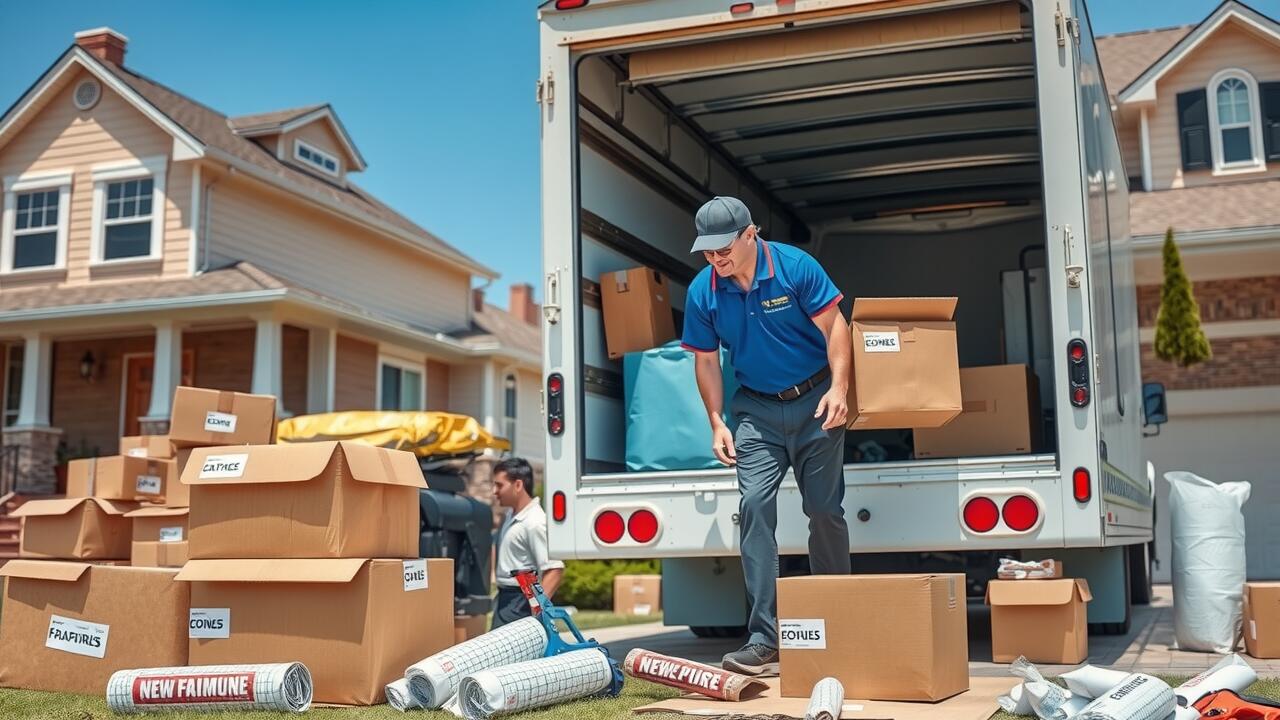
Table Of Contents
Insurance Considerations for Moving a Trailer
When considering insurance for moving a trailer, it’s crucial to understand the specific types of coverage required to protect your investment. Most standard auto insurance policies provide some level of coverage for trailers, but this may not be sufficient for long-distance moves. Additional coverage options, such as comprehensive and collision coverage, should be evaluated. If you are planning on long-distance moving in A-1 Trailer Park, Phoenix, checking with your insurance provider to ensure your trailer is adequately covered during transit is essential.
Another important factor is liability coverage, which can protect you from any damage or injury that might occur while moving your trailer. Depending on the distance and value of your trailer, you may also want to consider specialized trailer insurance. This type of policy can provide peace of mind, especially in areas with higher rates of accidents or theft. Thoroughly researching insurance options can save you from unexpected financial burdens during your move.
Types of Coverage Needed
When moving a trailer, it is essential to secure the right insurance coverage to protect against potential damages or accidents. Liability insurance is a basic requirement that covers any damage to third-party property or injuries caused during the transportation process. Additionally, it is wise to consider comprehensive coverage, which safeguards your trailer from theft, vandalism, and damages resulting from accidents. If you are planning long-distance moving in A-1 Trailer Park, Phoenix, ensure you consult with your insurance provider about the specific requirements for your situation.
Another important type of coverage to consider is cargo insurance. This protects the contents inside your trailer during transit, giving you peace of mind in case of unforeseen incidents. Depending on the value of the items you're transporting, you may need higher limits to adequately cover any potential losses. Always review your existing policy to identify any gaps in coverage related to moving your trailer and discuss necessary adjustments with your insurance agent before hitting the road.
Choosing the Right Equipment for Transport
Selecting the proper equipment for transporting a trailer can significantly impact the ease and safety of the move. A vehicle with sufficient towing capacity is essential. Many pickup trucks and SUVs are designed for this purpose, but it is crucial to check the manufacturer's specifications to ensure compatibility. Additionally, a reliable hitch system is necessary to secure the trailer properly during transport. For those unfamiliar with trailer towing, consulting a professional can help in understanding the best options available.
Long Distance Moving in A-1 Trailer Park, Phoenix, presents unique challenges that require careful planning. Utilizing the right tools is just as important as having a capable vehicle. Consideration should be given to wheel blocks, safety chains, and brake controllers to enhance the safety of the move. Proper tools not only aid in the loading and unloading process but also ensure that the trailer remains stable throughout the journey. Being equipped with the right gear can prevent potential accidents and damage.
Necessary Tools for Safe Moving
When preparing for the safe transport of a trailer, having the right tools is crucial. A sturdy hitch is essential for connecting the trailer to your vehicle. Safety chains add an extra layer of security, ensuring that the trailer remains attached in case of an emergency. Additionally, using load distribution bars can help balance the weight effectively, improving stability on the road. Wheel chocks are also important; they prevent the trailer from rolling when parked. Ensuring that you have these necessary tools can significantly reduce the risks associated with trailer transport.
For those engaged in Long Distance Moving in A-1 Trailer Park, Phoenix, a few specialized tools can make the process smoother. A hydraulic jack can help with lifting the trailer when connecting or disconnecting it from the tow vehicle. Tire repair kits should be on hand in case of a flat tire during the journey. Moreover, having reflective markers and cones can enhance visibility, especially during night moves or in low-light conditions. Investing in these tools ensures that the move is conducted safely and efficiently, minimizing potential hazards along the way.
Hidden Costs to Anticipate
Moving a trailer, even just a mile, can come with unexpected expenses that require careful consideration. For instance, if you're relocating within an area like Long Distance Moving in A-1 Trailer Park, Phoenix, you may encounter costs such as securing permits or unexpected fees charged by local authorities. These additional charges can quickly add up, catching many movers off guard.
Another hidden expense to keep in mind involves fuel costs for towing the trailer. Even short distances can incur substantial fuel usage depending on the weight and size of the trailer. Additionally, if road conditions or traffic cause delays, the costs of fuel can escalate beyond initial estimates. Planning for these potential hidden costs ensures a smoother moving experience.
Unexpected Expenses During the Move
When planning a move, it's important to account for potential unexpected expenses that may arise. Even short-distance relocations can come with hidden costs like fuel surcharges, additional rental fees for equipment, or even extra charges for last-minute changes to your moving plan. If you're considering Long Distance Moving in A-1 Trailer Park, Phoenix, you might face unique challenges that could impact your budget. Factors like traffic delays or needing to make adjustments on-site can add up quickly and derail your financial forecast.
Another aspect to watch for involves installation or utility hook-up fees. Disconnecting and reconnecting services at your new location may incur additional charges, especially if your trailer requires specialized installations. It's also wise to budget for potential damage or repairs during the move, which can add unexpected costs to the process. Proper preparation can help alleviate the financial strain of these unpredicted expenses.
FAQS
How much does it typically cost to move a trailer 1 mile?
The cost to move a trailer 1 mile can vary widely depending on factors such as the type of trailer, the method of transport, and any additional services required. Generally, you can expect to pay anywhere from $1 to $5 per mile, but prices may fluctuate based on local rates and specific needs.
What factors influence the cost of moving a trailer?
Several factors influence the cost of moving a trailer, including the size and weight of the trailer, the distance of the move, the type of transport vehicle used, and any additional services like insurance or specialized equipment needed for safe transport.
Do I need insurance when moving a trailer?
Yes, it is advisable to have insurance when moving a trailer. This coverage can protect you from potential damages or accidents during the move. It's important to check with your insurance provider to understand what coverage options are available.
What tools are necessary for safely moving a trailer?
Necessary tools for safely moving a trailer include a reliable towing vehicle, hitch and ball connectors, safety chains, wheel chocks, and possibly a trailer brake controller. Ensuring you have the right equipment is crucial for a smooth and safe transport.
What are some hidden costs I should anticipate when moving a trailer?
Hidden costs when moving a trailer can include fuel expenses, toll fees, potential repair costs for the trailer or vehicle, rental fees for towing equipment, and costs for additional insurance. It's wise to budget for these extras to avoid surprises.
